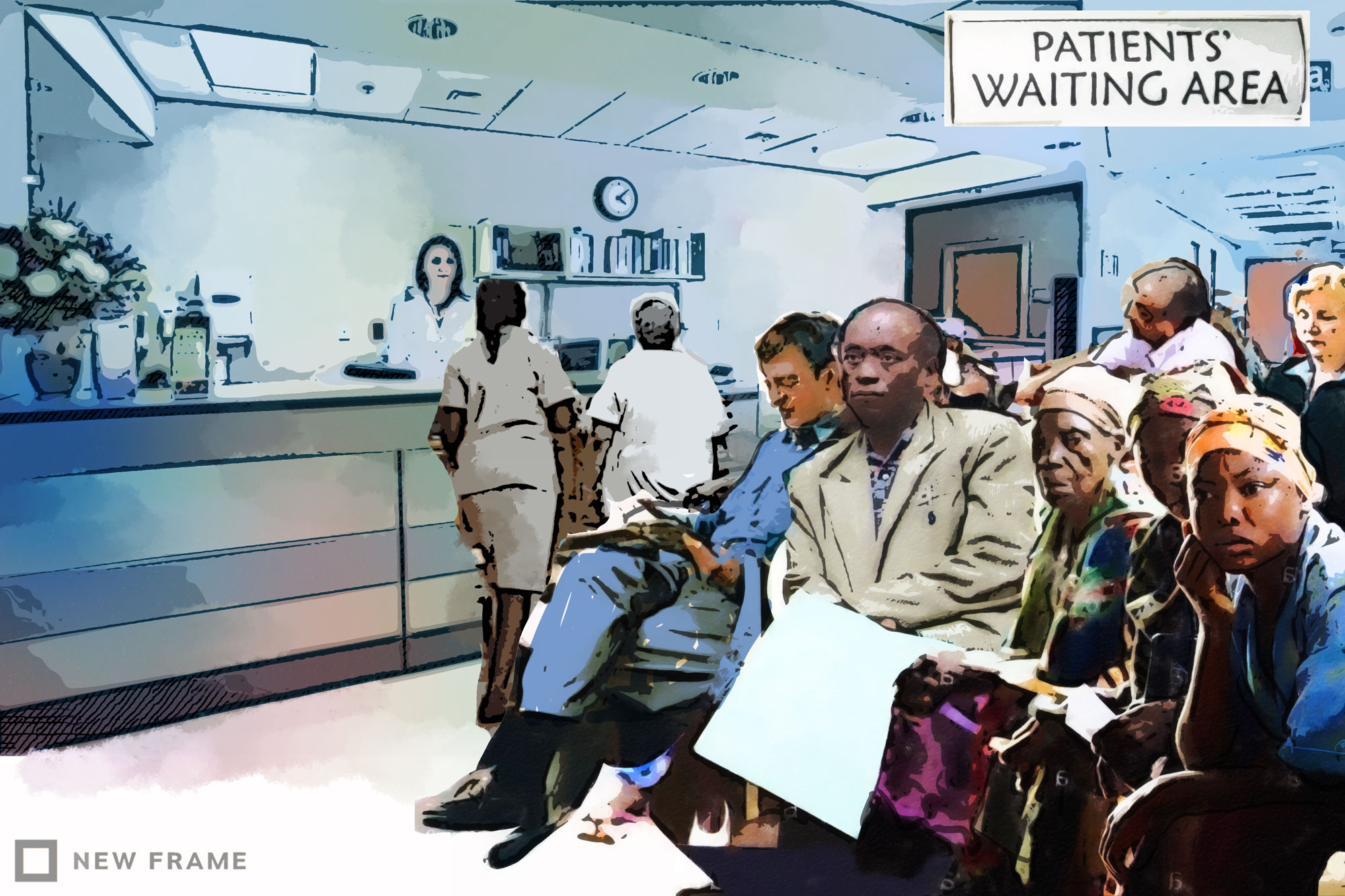Pressure for private hospitals to be nationalised
Government has stopped short of nationalising private hospitals, but unions and community-based organisations are pushing for free healthcare for all – now and beyond the Covid-19 pandemic.
Author:
24 March 2020

Millions of South Africans have no medical aid and lack the funds to pay for private healthcare. But announcing the 21 day lockdown on Monday night, President Cyril Ramaphosa stopped short of nationalising private hospitals to fight Covid-19. Last week, Netcare’s medical director, Anchen Laubscher, said it was “premature to provide answers” about whether they would turn very ill Covid-19 patients away if they had no funds or medical aid to pay for treatment. This after the government of Spain temporarily nationalised all private hospitals and healthcare providers in the country for the duration of the Covid-19 pandemic so the public could use the hospitals free of charge.
From the time Covid-19 began to be a concern in South Africa, there has been a lack of clarity around the role of private hospitals. On 16 March 2020, South African Minister of Health Zweli Mkhize said private hospitals may be required to admit Covid-19 patients who would ordinarily be treated at public hospitals. But he did not say what kind of services private hospitals would provide or whether critically ill people without money or medical aid could be sure they would be admitted if they arrived at the emergency departments of private hospitals. In the same week, Mkhize’s spokesperson Popo Maja told New Frame that South Africa would not be nationalising private hospitals for the duration of Covid-19.
“No, we don’t have those plans. This would be done under which Act? We will involve [private hospitals]. We do have a relationship with them when we have an outbreak or a disaster. It will be for [government] to pay. We will pay agreed rates,” Maja said.
Maja would not say exactly how the private hospitals would be involved but it seems that overstretched public hospitals will have to refer critically ill Covid-19 patients, rather than patients taking themselves to the facilities.
Related article:
By 17 March, Netcare’s Laubscher said “discussions are taking place between the private hospitals and the Department of Health (DoH) regarding all aspects of managing the Covid-19 pandemic,” Netcare’s Laubscher said. “All Covid-19 patients requiring hospitalisation are admitted to the appropriate facility with the authorisation and full knowledge of the DoH. We stand ready to assist the national and provincial Departments of Health wherever we can. We remain fully committed to offering our support to the Department of Health and the people of South Africa.” In the same week, Mediclinic private healthcare group said, “At this stage we continue to operate in our existing capacity. This stance will be reviewed regularly in industry forums as the Covid-19 situation evolves.”
But after making these statements, several private hospitals in KwaZulu-Natal agreed to make beds available free of charge if the number of coronavirus patients escalates dramatically. However, KwaZulu-Natal MEC for health Nomagugu Simelane-Zulu said the public health sector, which is short staffed and lacks equipment, would still need to provide the medical staff and equipment for some of the private facilities, which are currently empty.
Again at an interministerial press briefing on 24 March, Mkhize did not mention the nationalisation of private hospitals. “We have got private sector willing to share their [hospital] beds and we are already working with all of them to see what can be done” Mkhize said, adding that in a situation like this, “no one can refuse to work with government”.
The lack of decisive action by government raises the spectre of seriously ill people dying because of delayed referrals or being turned away at the doors of private hospitals. A February 2020 Lancet medical journal study concluded that the ability to place critically ill Covid-19 patients on ventilators in intensive care units was critical to recovery rates. The media reported last week that private hospitals have 4 957 critical care beds while public hospitals have only 2 238.
Campaign against the two-tier health system
Community-based organisations and academics have slammed the government for failing to nationalise the private health sector from the start of the pandemic. Johannesburg-based non-profit Khanya College works with working class and impoverished communities, including community health workers from the Gauteng Community Health Care Forum and waste pickers. Recently, these groups came together to begin a grassroots Covid-19 campaign that demands an end to the “public health system for the poor and a private health system for the rich”, also known as South Africa’s two-tier health system. The campaign also called for food vouchers of R2 000 per month to be supplied to every unemployed family for the duration of the pandemic.
Maria van Driel of Khanya College has been researching and campaigning against health inequality in South Africa for more than 30 years. She said, “The government definitely needs to follow the example of Spain and nationalise all private hospitals at once. The state must also take command of all laboratories. What this means is that private laboratories have to service all test specimens whether from private or public hospitals and clinics. The situation where tests from township clinics only come back after … sometimes weeks, is a scandal that cannot be tolerated in this context.”
“The private health system has all the facilities needed to respond to Covid-19,” she said. “Testing facilities for the virus, laboratories that can generate results [quickly], clean hospitals, access to water and – with their generators – a stable supply of electricity, instruments to rehydrate patients and resources to feed them.”
Related article:
Public hospitals, on the other hand, have “water that sometimes does not run [or] is cut for lack of paying municipal bills, [an] unstable electricity supply, a demoralised and apathetic staff [who do] not use these facilities when they get sick since they are contracted to state medical aid, hospitals and clinics with chaotic administration, [and] laboratory services that periodically hit the headlines because of their lack of capacity and chaos”, said Van Driel.
The legacy of apartheid and then 25 years of neoliberalism as well as government’s “shameful cowardice and lack of resolve in its … attempts [to unify] the two health systems” means that South Africa “cannot respond to the crisis without radical changes in the health system”.
“The only way is to have a collective response to Covid-19 [is for] government [to take] over [the supply of] whatever is needed, not only … private hospitals and lab testing but also … food supply and distribution. We need a system that is going to assist everyone to survive. We have already seen in the shops there is no rationing, so people with money just take everything. It really is a problem that government does not want to act decisively. Capital is very strong here, and I don’t think the government is in charge. Government needs to have the courage to say, ‘We are going to do what is necessary,’” said Van Driel.
Healthcare for all
The National Union of Metalworkers of South Africa (Numsa) says private hospitals must be nationalised and open to all and that “private healthcare must be abolished in its entirety”. Last weekend, Numsa said it was unclear if all or any private health services would be free to the public during the coronavirus outbreak. “That is deeply concerning for us because the majority of the population is not on medical aid, and they will not be able to afford these services,” said general secretary Irvin Jim.
Shaheed Mahomed, Western Cape chairperson of the Socialist Revolutionary Workers’ Party (SRWP), also said private hospitals should be nationalised. “Every year, thousands of people, particularly children under five and elderly people die of flu because they are excluded from health facilities that are properly equipped with ventilators and other vital equipment.”
The SRWP is campaigning for permanent free health care for all, and not only for the duration of the Covid-19 pandemic, Mahomed said.
Abdul Karriem Matthews of Cape Town’s Bishop Lavis Action Community said his members were concerned that the Western Cape government had set up 13 testing sites in Cape Town but 12 of these were at private health centres and none were situated in the townships. The community-based organisation was also calling for “mass distribution of soap and sanitiser for the Cape Flats and townships”. “Private hospitals must be nationalised now. Universal public healthcare is essential not only to curb outbreaks, but also to ensure crisis preparedness and full realisation of the right to health. This pandemic must serve as a wake-up call to governments on the crucial need to roll back a decades-long history of privatisation and commodification of health,” Matthews told New Frame.


